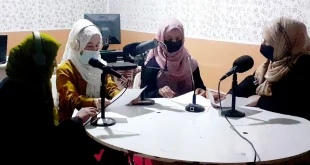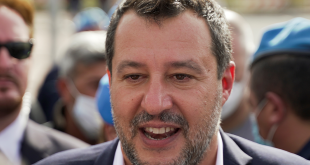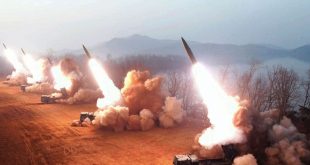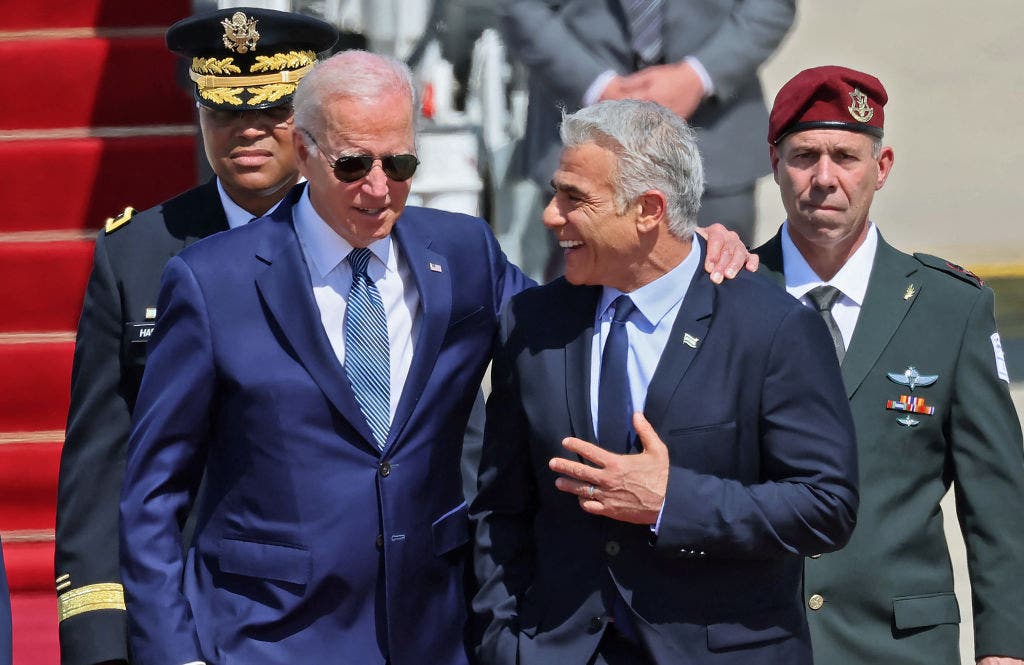
Israeli officials worry that the U.S. shift away from pursuing the Iran nuclear deal may prove temporary and that the deal remains a key focus for the Biden administration, despite comments to the contrary from officials in the past two weeks, according to a recent report in the country’s media.
“Unless the Biden administration works with its partners to trigger ‘snapback’ at the U.N. Security Council, the JCPOA (Joint Comprehensive Plan of Action) will sadly always be the on the table,” Behnam Ben Taleblu, senior fellow at the Foundation for Defense of Democracies (FDD), told Fox News Digital. “Right now, the reason for no deal has more to do with politics and demands in Tehran than grandstanding from Washington.”
“Let’s hope what the administration is signaling between the lines about the deal remains true the moment (Iranian leader Ali) Khamenei picks up the phone,” Taleblu added. “It’s high time the administration see the linkage between the nuclear, regional, domestic and other challenges and formally pull the plug on an accord that would enrich Iran’s apparatus of domestic suppression and foreign aggression. Anything less than that is just talk.”
A video that surfaced online last week appeared to show President Joe Biden saying that the deal “is dead, but we’re not going to announce it.”
MOSSAD CHIEF WARNS OF IRAN’S GROWING ADVANCED WEAPONS SUPPLY TO RUSSIA, EFFORTS TO ENRICH URANIUM
An Israeli official who took part in closed discussions about Iran told Israeli newspaper Haaretz that the government understood that despite Biden’s comments, the impression remained that a significant twist in the nuclear deal is coming within a few months.
Yet U.S. officials seem to think otherwise.
“The Iranians killed the opportunity for a swift return to mutual compliance with the JCPOA in September when they turned their backs on a deal that was on the table, approved by all,” a U.S. State Department spokesperson told Fox News Digital. “The JCPOA has not been on the agenda for months. It is not our focus.”
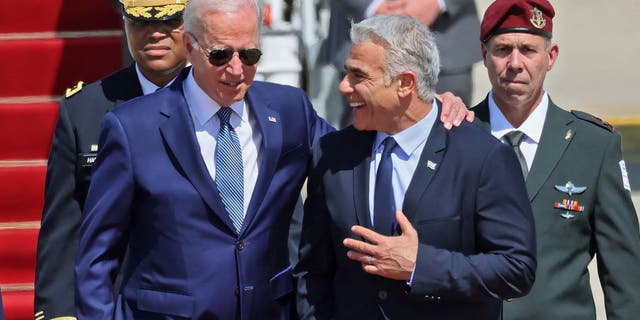
President Joe Biden is welcomed by Israeli caretaker Prime Minister Yair Lapid upon his arrival at Ben Gurion Airport.
(Jack Guez/AFP via Getty Images)
The Joint Comprehensive Plan of Action – also known as the Iran nuclear deal – remained a key point in the Biden administration’s foreign policy plan for months. The effort to revive the deal has proven a divisive one in the U.S., but a number of countries in the Middle East – including Israel – have made it clear that they strongly oppose any deal of the kind.
On Dec. 22, State Secretary Antony Blinken said Iran “is engaging in destabilizing activities, dangerous activities,” including support for terrorist groups, destabilizing actions throughout the region.
FEMALE IRANIAN CHESS PLAYER COMPETES AT TOURNAMENT WITHOUT WEARING HIJAB
“When the JCPOA … was actually enforced, it did exactly what it was designed to do,” Blinken said. “It put Iran’s nuclear program in a box. It was verified not only by international inspectors, it was verified by our own people, Iran’s compliance with that, including by the previous administration.”
“In our judgment, it was a grievous mistake to pull out of that agreement and to let Iran’s nuclear program out of the box, but that’s the reality that we inherited and that we’ve had to deal with,” he added, stressing the administration’s clear goal to ensure Iran does not obtain a nuclear weapon.
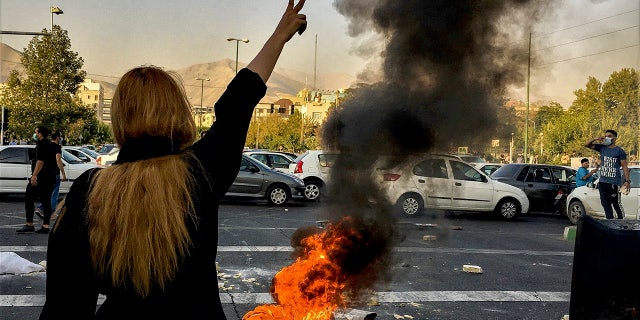
In this photo taken by an individual not employed by the Associated Press and obtained by the AP outside Iran, Iranians protest the death of 22-year-old Mahsa Amini after she was detained by the morality police.
(AP Photo/Middle East Images, File)
Part of that change in posture relates to the nationwide protests that have rocked Iran for more than 100 days following the death of 22-year-old Mahsa Amini while in custody of the nation’s morality police. The administration allegedly determined that Iran could not put down the protests without drastically improving its economic situation, which would make the nuclear deal more appealing.
Outgoing Israeli Prime Minister Yair Lapid estimated that the deal would provide Tehran with $100 billion a year, which Iran would use to “undermine stability in the Middle East and spread terror around the globe,” Reuters reported.
IRAN SOCCER STAR’S FAMILY PREVENTED FROM LEAVING COUNTRY AFTER PROTESTING AGAINST REGIME
But the U.S. State Department and National Security Council stress that the protests instead made it clear that any deal with Iran would prove unacceptable, even as they continue to underscore the need to find diplomatic means to prevent Iran from obtaining a nuclear weapon.
“Since September, our focus has been on standing up for the fundamental freedoms of the Iranian people and countering Iran’s deepening military partnership with Russia and its support for Russia’s war in Ukraine,” the State Department spokesperson said.
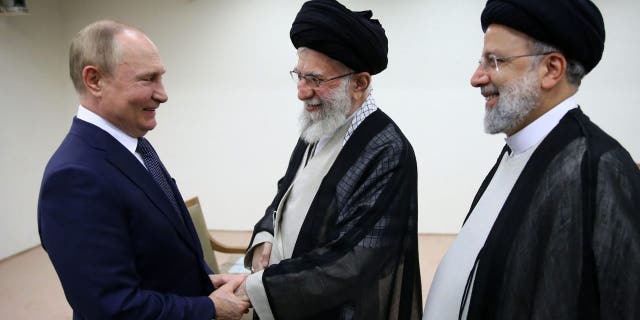
Iranian Supreme Leader Ayatollah Ali Khamenei, center, and Russian President Vladimir Putin, left, greet each other as Iranian President Ebrahim Raisi looks on during their meeting in Tehran, Iran, July 19, 2022.
(Office of the Iranian Supreme Leader via AP)
“While the JCPOA has not been on our agenda for months, what is very much alive is President Biden’s absolute commitment to never allowing Iran to acquire a nuclear weapon,” the spokesperson continued. “We believe diplomacy is the best way to achieve that goal, but President Biden has also been clear that we have not removed any option from the table, and that a military option remains as a last resort.”
A National Security Council (NSC) spokesperson told Fox News Digital that the administration will “continue to confront Iran’s behavior in the region, protect our troops … and support the brave Iranian people demanding their basic rights and dignity – which the regime has long denied them.”
“We don’t see a deal coming together anytime soon,” the NSC spokesperson said. “Iran is killing its young people and selling UAVs to Russia to kill Ukrainians. Our focus is on practical ways to confront them in these areas.”
CLICK HERE TO GET THE FOX NEWS APP
“We will continue taking action to impose costs on those who commit violence against peaceful protesters or otherwise seek to suppress their rights,” the spokesperson added. “Our diplomatic efforts under the Biden administration have also made space for other countries to join in our condemnation of Iran’s bad behavior.”

 Latest Breaking News Online News Portal
Latest Breaking News Online News Portal


